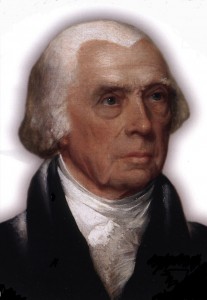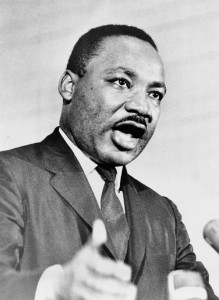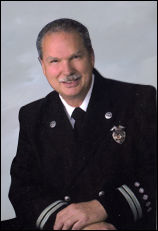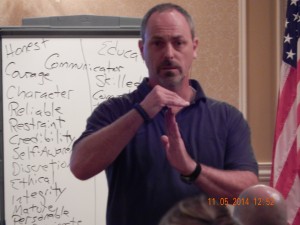I recently received these comments from a Romanian Police Colleague about the impact Police Dynamics training has had on his career. They are posted as an encouragement to others and to show how character-based principles transcend cultures…
Based on the lessons and discussions with Ray Nash about competence and character, myself and the teams I coordinated have been done the difference in many law enforcement strategies about new approach of fighting crime in former East-European countries, as it can be seen on the internet.
Many of my achievements are due to the training on character and model that Ray Nash was for me. I can say that meeting him transformed me from an average Romanian police officer into a good international law enforcement official. By his training, character, experience and many other personal and professional qualities, I consider him a top international official in law enforcement matters. I will always be proud of meeting and knowing him.
Superintendent Teofil Parasca
Deputy Chief Inspector
Satu Mare County, Romania
Finally got the website back up and running again. The crash was a setback but a blessing in disguise because I like the new theme so much better. Although I still have some fine-tuning to do…
Now, on to today’s video training segment… At Police Dynamics, I try to keep things simple. So here is a simplified mission statement for supervisors.
Accomplishing pre-determined objectives through others.
As if just getting the job done was not hard enough, as a supervisor your job is even harder because you have to accomplish the organizational goals though the efforts of other people! So let’s break down this mission statement.
My apologies for the Police Dynamics website going down today. I updated WordPress.org which is the platform I use for the site. But the theme I am using is apparently incompatible with the newest version of WordPress. So the whole thing crashed! Thanks to Garrett at GoDaddy.com I was at least able to get the site back online. But many of the features are still inactive and it reverted back to an earlier version of the site. So a lot of the links and pages will be out of date. It will take me a couple of days to get the site back like it was. In the meantime, if you came here looking for the complimentary training resources, send me an email at ray@policedynamics.com and I will send you a link so you can download them. The free downloads include:
- The Benefits of Good Character
- 49 Character Quality Definitions
- The Ten Virtues of a Law Officer
- The Police Dynamics Intro Video
For some time now, I have been wanting to post some training videos from the Dynamic Leadership series. And it seemed like 2012 would be a good time to start. Dynamic Leadership applies the character-based principles of Police Dynamics to the arena of leadership and supervision. That’s why I always tried to make the Police Dynamics series, at least the Dynamics of Character and Authority, a pre-requisite for Dynamic Leadership.
When I first designed Dynamic Leadership many years ago, I wanted it to be something different — something more than your run of the mill leadership or supervision course. The fact that I am often called upon to present it to live audiences makes me think I have accomplished that to some degree or another. But I will let you be the judge of that.
In this first installment, I explore a working definition of SuperVision that might be a little different than what you expect. A good supervisor sees beyond the obvious, he (or she, of course) sees the big picture, how things fit together, the causes and effects associated with actions and decisions, below the surface of behavior into the heart of character. That’s what makes an effective supervisor — the ability to discern the true motivations underlying behavior, the character of the heart.
And don’t make the mistake of thinking that your officers or subordinates share that view. Often they do not. They have not yet achieved the maturity to see things from a broader perspective, to understand the causes and effects associated with their behavior, attitudes, and decisions. Your job as a supervisor is to pass on that ability to the next generation of leaders…
It’s always special when I hear from a former deputy. But it is particularly encouraging when they tell me how much our character-based training program meant to them. Here is a lesson from one of my deputies that he told me I could share. With his permission, here is an edited version of his comments…
“I had anger issues and was being led in the wrong direction due to the people I associated with. Even when I first came into law enforcement at (agency). I left there and took a break so I could get rid of the crowd. I then decided to get back into law enforcement when I had a friend get killed in the line of duty. You gave me that opportunity to come back despite the bad references you may have gotten. I started at the Dorchester County Detention Center as a detention officer and was given a second chance in law enforcement. I was amazed with the family-oriented environment. I received more training in my first month than I did in nearly two years at (the other agency). I loved going to character training. It was like a family reunion once a month. I was on the transport team, had a take home car, and made 42k my first year doing that. I was on the dive team. And I had a badge that said “deputy.”
“I learned a lot about ethics, morals and character from you. I still remember walking down the hallway at the Summerville office. I passed by you and I moved far to the right. You stopped me and shook my hand and told me “happy birthday.” That’s a great supervisor. You had probably 300 plus employees and you knew me. The day after (the new sheriff) took over, they lined all the detention officers up and stripped us of our badges. Then a week later took my car, gun, and disbanded the dive team.
You gave me a foundation I should have learned from my father. I learned anger from him. So that caused me to rebel ultimately leading me to the wrong crowd. He did teach me right from wrong. I’ve done some research on early childhood development since I have two daughters of my own now. It says a child learns all of their morals by age 7. So I’m working with my children every day. My oldest is almost two. She says “thank you” and gives hugs and kisses. And says “amen.” Those are foundations.
One thing that really opened my eyes on your Police Dynamics website was the rewards for accomplishment (instead of character). I have been craving for that because being new to the road I’m learning and thats been my way of trying to figure out how I’m doing. I really can see how it (praising for achievement rather than character) could promote poor character decisions.
Like many things in life, even our character can get out of balance. For instance, the character qualities of Attentiveness (showing the worth of a person, idea, or task by giving it my undivided concentration) and Alertness (being aware of my surroundings so I can have the right response) must remain in balance. If I am so focused on you that I fail to notice a fire starting in the corner of the room, my character is out of balance. In the same way, if I am so hyper-vigilant that I cannot focus on you and what you are saying, my character is out of balance. The same thing applies to Truthfulness (earning future trust by accurately reporting past facts) and Discretion (avoiding words, actions, and attitudes that could have undesirable consequences). I can be so truthful that I unnecessarily hurt the feelings of a friend or reveal information that could place someone else in jeopardy.
Recently, I gave a character recognition to one of my colleagues with the International Police Coordination Board (IPCB) for his Availability (making my own agenda secondary to those I serve) and Dependability (fulfilling what I consented to do even if it means unexpected sacrifice). He later told me that these character qualities often get him in trouble because he spends so much time helping others that he neglects his own work. Then, he has to take his work home and neglects time with his wife and family. His character is out of balance. His Availability and Dependability are HUGE character qualities that define who he is as a true man of integrity. But they must be balanced with Discretion and Attentiveness.
“If it be asked what is to restrain the House of Representatives from making legal discriminations in favor of themselves and a particular class of the society? I answer, the genius of the whole system, the nature of just and constitutional laws, and above all the vigilant and manly spirit which actuates the people of America, a spirit which nourishes freedom, and in return is nourished by it.”
— James Madison, Federalist No. 57, 1788
As you can see, I have been working hard on the Police Dynamics website for the last couple of months (Although, for the 30 days I was home on leave, I did absolutely nothing except spend time with family and friends. In other words, it was a HUGE success!) But now I am back at the US Embassy in Kabul and ready to take Police Dynamics to the next level. I hope you like the format and the new web address.
Please take advantage of the free resources you see located in the sidebar on the right side of the page by submitting your email address, and let me know if you encounter any difficulties with the downloads. This is definitely a work in progress and I am learning as I go. My goal is to have some very useful training and professional development resources available on the site very soon so please stay tuned…
In the meantime, enjoy the guest posts by my friends and colleagues, Doug Dickerson and Al Mozingo. Thanks to them for filling in for me…!
Sheriff Ray
In light of our recent commemoration of Dr. Martin Luther King Day, who will always be endeared to me due to his famous quote about character:
“I have a dream that my four little children will one day live in a nation where they will not be judged by the color of their skin, but by the content of their character.”
I have asked a colleague of mine from the fire service, Al Mozingo, to provide a guest post on leadership. Enjoy…
Sheriff Ray
[divider_bar]Insert Your Text Here[/divider_bar]
The principles of leadership can be taught to a student of leadership in many different formats. One can study the characteristics of great leaders or study their behavior and actions. To take a class, read a book, attend a seminar, or read an article about the subject matter are other methods of gaining knowledge and insight into leadership principles.
In this article, I will describe leadership principles in a different way by presenting a story to show pragmatically the lessons of the principles of leadership. Putting the principles into practical use, by one’s own action, is where the “tire meets the road.” This little story was in a book entitled, Virtues of Leadership, by William J. Bennett.
The Story
In January 1956, the Rev. Martin Luther King, Jr., left his home to attend a meeting at a nearby church. During the meeting someone came into the church with news for King; “Your home has been bombed.” Rev. King, upset and anxious because his wife and baby were in the house at the time of the bombing, rushed home to find a large number of people in the house. The bomb had actually exploded on his front porch raining glass into the living room. After checking on his wife and daughter he turned his attention to the angry crowd.
People who gathered outside of the house wanted revenge against whoever had done this terrible act. Some of them were actually carrying guns and shouting at the police. The situation was about to turn to chaos and become violent. He told the crowd in a calm voice that his wife and child were fine.
Silence had fallen over the crowd as he began to speak to them. He indicated to the crowd that violence was not the answer. He explained that violence would harm their cause, it would not solve their problems. As of matter of fact, it would make it worse. He indicated that the Bible teaches, “We must meet hate with love.” He told them to put down their weapons and to go home.
The crowd’s demeanor started to change. People became calm and some said “Amen” and others said “God Bless You.” At a moment of chaos and anger, Rev. King seized the moment to show true leadership. The crowd responded to this and started to drift apart and go home. As events unfolded, photographs were taken and the next morning newspapers across the country ran the photos on the front page. The Civil Rights Movement began to swell; this was a turning point in history! Under pressure a great man put personal virtues into action in the form of true leadership.
Leadership Virtues
Rev. King’s virtues included courage, wisdom, and faith. He had a certain vision and the talent to progress that vision forward with leadership. His virtues also included compassion, perseverance, and faith. We all should strive to have these virtues, character and traits as our own. These virtues will allow us to operate with a calm clear mind when under pressure. They will assist in guiding us in areas of moral and ethical situations. One of the great principles of leadership is one’s own character.
Reference:
William J. Bennett, The Book of Virtues, W Publishing Group, a Division of Thomas Nelson, In., Nashville, Tennessee, 2001
About the Author
Al Mozingo is a nationally recognized leadership instructor and a 30-year veteran of the Fire Service. Mr. Mozingo teaches for the National Fire Academy, State Fire Training, and Local Fire Academy. He has a wide range of programs available. You can contact him to present a leadership program at your location today: www.firemanager.com or (619) 447-2828
The real test of a man is not when he plays the role that he wants for himself but when he plays the role destiny has for him. – V´aclav Havel
For movie buffs, it is one of the most memorable scenes in movie lore. Harold Francis Callahan, the lead character in Dirty Harry portrayed by Clint Eastwood, has just killed two bank robbers. A third bank robber (Albert Popwell) lies wounded on the pavement near a gun. Callahan approaches him with his .44 Magnum and delivers the line, “…you’ve got to ask yourself one question: Do I feel lucky? Well, do ya punk?”
The movie ranks 51st on 100 years…100 Movie Quotes for the line Callahan delivers. But for all of the recognition Eastwood received for the role, he was not the one originally cast for the role. Initially, Frank Sinatra accepted the role but eventually backed out due to a hand injury. Burt Lancaster also turned down the role.
As for other famous movies it is interesting to note that W.C. Fields passed on playing the role of Wizard in The Wizard of Oz. Fields wanted $100,000 and MGM offered just $75,000. Cary Grant turned down a role in James Bond, Bette Davis turned down the role of Scarlet O’Hara in Gone with the Wind, Daryl Hanna turned down the role of Vivian, in Pretty Woman, and Al Pacino turned down the role of Han Solo in Star Wars.
Someone once said, “Be willing to give up all that you now are to be all that you can become.” And that is what leaders do. As some actors vacated roles that were handed to them, others stepped up and became stars. The journey of leadership, as in life, is not always predictable. How you respond will determine the role destiny has for you. Consider these three points of destiny as you set the course of your leadership development.
The unexpected; dare to embrace it. In his new book, Nearing Home, Billy Graham shares about his early ambitions in life. His dream was to be a professional baseball player. But there was a greater role that destiny had for him and baseball was not it. While baseball is certainly an honorable profession, the calling upon Billy Graham’s life was a higher one.
An inability to embrace the unexpected can make the difference between a promotion versus a raise, a large new account versus one small sale, or a life that touches millions versus a life lived in the shadows. If the unexpected is treated as an interruption and not seen as an opportunity, it will hold you back. Embrace the unexpected; it could be your blessing in disguise.
Your uncertainties; rise above them. After a devastating fire swept through his lab, no one would have blamed him if he decided to give up and pursue another career. When found in the midst of the rubble the fire left behind, he turned to his son and said, “There is great value in disaster. All our mistakes are burned up. Thank God we can start anew.” And start anew is what Thomas Edison did. Three weeks after the fire, he managed to deliver his first phonograph.
Whether your uncertainties are born out of tragedy, your imagination, or by skepticism placed upon you by others; your destiny is within reach when you rise above your doubts and conquer your fears. Shakespeare was right when he said, “Our doubts are traitors and cause us to miss the good we oft might win by fearing to attempt.” The first step towards achieving your destiny as a leader is making the attempt.
The unimaginable; you can live it. In the book, Halftime: Changing Your Game Plan from Success to Significance, Bob Buford writes, “Most people never discover their ‘one thing.’ But part of what is so unsettling about approaching the end of the first half of our lives is that we know it is out there somewhere.” The unimaginable is the dream you have that will elevate you beyond the traditional definition of success to a more purposeful life of significance.
Regardless of the role destiny has for you as a leader, I am a firm believer that you can achieve it. When you embrace the unexpected, overcome your doubts, you can live the unimaginable. The reach of your leadership rests in the power of the beliefs.
Have you embraced your destiny?
© 2011 Doug Dickerson
Doug Dickerson is an award winning columnist and leadership speaker. He is the author of the book, Leaders Without Borders: 9 Essentials for Everyday Leaders. A Lowcountry resident, Doug is available to speak for your civic, business, or church group. Visit www.dougsmanagementmoment.blogspot.com to learn more.






Comments from a Romanian Colleague